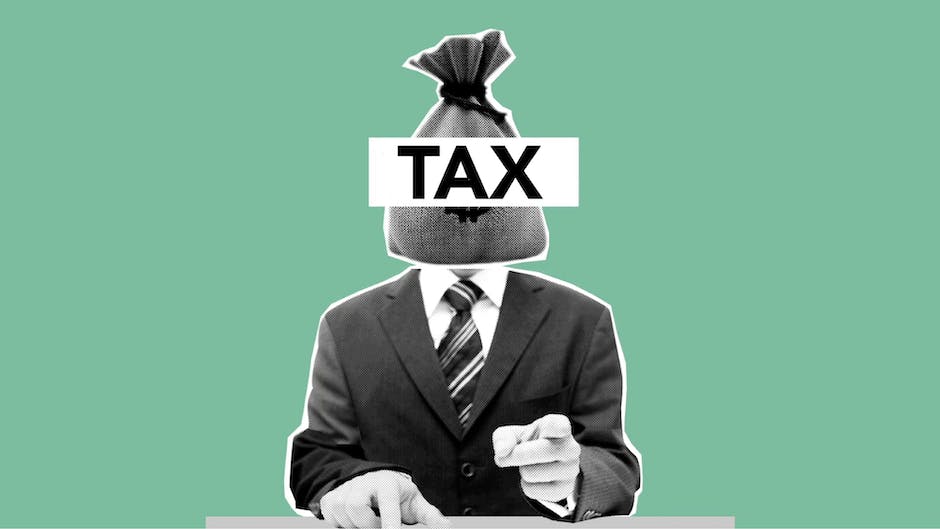Mastering the ins and outs of credit scores can seem like a daunting task, but it’s one that can have a profound effect on your financial well-being. A strong credit score not only makes it easier to secure loans and credit cards but can also open the door to better interest rates and a host of other financial opportunities. This exploration begins with understanding what credit scores are, their importance, and the leading models like FICO and VantageScore used in their calculation. Engendering good financial habits, analyzing your credit reports and creating debt management strategies are key steps on the path to improving your credit score. We’ll also delve into the world of credit cards and their essential role in credit building.
Understanding Credit Scores
What are Credit Scores?
A credit score is a three-digit number that lenders use to assess your probability of repaying debts on time. It represents your credit risk at a point in time. The higher your score, the more likely you are to repay your debts, making you more appealing to lenders. Credit bureaus such as Experian, TransUnion, and Equifax generate these scores based on the information they gather about your credit history.
How are Credit Scores Calculated?
Two popular credit scoring models are the FICO Score and the VantageScore.
The FICO Score usually ranges between 300 to 850, with a higher number indicating lower risk. This model considers factors such as payment history (35%), amounts owed (30%), lengths of credit history (15%), new credit (10%), and types of credit used (10%).
The VantageScore is a newer model, developed jointly by the three major credit bureaus. Like FICO, VantageScore ratings fall between 300 and 850. It also considers similar factors but weighs them differently: total credit usage, balance, and available credit (extreme influence); credit mix, and experience (highly influential), and payment history (moderately influential).
Why are Credit Scores Important?
Credit scores are vital because they can affect your ability to secure loans, the interest rates you pay on loans, credit approvals, rental applications, and sometimes even job applications. The higher your credit score, the more financial opportunities you typically have at more favorable terms.
Factors That Influence Your Credit Score
- Payment history: Paying bills on time is a major factor in your credit score, accounting for 35% of your FICO Score. Late or missed payments can negatively impact your score.
- Credit utilization: This term refers to how much of your available credit you’re using. Lower utilization rates can help boost your credit score.
- Types of credit: Having a mix of credit like credit cards, auto loans, mortgage loans, can show lenders that you can handle various types of debt responsibly.
- Length of credit history: The longer you’ve been using credit, the better lenders can gauge your behavior. A longer credit history can potentially improve your credit score.
- Recent applications for credit: Every time you apply for new credit, lenders perform what’s known as a hard inquiry on your credit report, which can temporarily lower your score. Moreover, opening too many accounts too fast can raise red flags for lenders.
By understanding these factors and how they impact your credit score, you can make more informed decisions and take steps to improve or maintain your current score.

Developing Good Financial Habits
Understanding Good Financial Habits
Good financial habits are the cornerstone of maintaining and improving your credit scores. It is essential to understand its weight because credit scores affect various aspects of life, such as loan approvals, interest rates, and even your employment prospects. The higher your credit score, the more likely it is for you to have beneficial financial opportunities.
Timely bill payments play a significant role in this process. Payment history makes up a considerable portion of your credit score calculation. Always ensure that all your bills are paid on or before their due dates. Delayed or missed payments can negatively affect your credit scores, and this can take a while to recover from. Automating your payments can help assure you never miss a deadline.
Balancing Your Credit Utilization Ratio
Your credit utilization rate is another factor that heavily impacts your credit scores. This ratio reflects the amount of your available credit that you’re using at any given time. It’s generally suggested to keep your utilization below 30% on all cards. That means, if you have a credit card limit of $10,000, your balance should never exceed $3,000. Maintaining a low credit utilization ratio shows that you manage credit responsibly, thus, leading to a potential boost in your credit score.
Avoid applying for new credit frequently. Too many hard inquiries shown on your report might give the impression that you are desperate for credit. This could raise red flags for potential lenders and may lower your credit scores. It is more advisable to limit and space these applications out as much as possible.
Diversifying Your Credit Portfolio
Having a mix of credit types showcases your ability to manage different types of credit responsibly. Credit accounts could vary from credit cards, to car loans, to student loans. However, this doesn’t imply that you should go out and open a bunch of new credit accounts; opening only what you can handle, are necessary, and can pay off can be more beneficial.
Try to have longstanding accounts with a good payment history. Lenders may view individuals with short credit histories as less creditworthy compared to those with longer credit histories. Remember, a long credit history accompanied by good credit behavior adds weight to your credit scores.
Credit Improvement is a Marathon
These methods may not lead to sudden and drastic changes, credit improvement is more of a marathon than a sprint. Understanding, maintaining and improving your credit scores is a careful balance of various factors. But with consistent, responsible financial behaviors, your credit scores are bound to improve over time.

Credit Report Analysis
Know Where to Gather Your Credit Reports
To begin with, you need to obtain and scrutinize your credit reports. The three major credit bureaus – Experian, TransUnion, and Equifax – each offer one free credit report annually. You can request these through the official website, AnnualCreditReport.com. Follow the site’s prompts to get individual reports from the listed bureaus.
Understanding Your Credit Reports
Once you’ve obtained your credit reports, it’s crucial to get a clear understanding of all the data. Each report contains sections such as personal information, public records, credit history, inquiries, and creditor contacts. Be sure to assess all sections thoroughly.
Identify Potential Errors in Your Credit Reports
Errors on your credit reports can harm your scores. You should look for any inaccuracies within the personal information section, check for accounts you don’t recognize, and evaluate all credit inquiries. Unusual activity, like unfamiliar loans or credit cards, could indicate identity theft.
Dispute Any Credit Report Errors
In case you identify errors on your credit report, it’s vital to dispute them as soon as possible. To do so, write a letter to the bureau that reported the error. Describe each mistake in detail and include copies of documents supporting your dispute. You can also apply online on the bureau’s website. An investigated dispute usually gets resolved within 30 days.
Negative Factors Affecting Your Credit Scores
Several negative factors could be impacting your credit scores. These might include late or defaulted loan payments, bankruptcy, high credit utilization rate, numerous hard inquiries, and carrying high balances on credit cards.
Strategies to Improve Credit Scores
- Paying Bills on Time – Late payments can severely impact your credit scores. Develop a solid habit of paying bills by their due date.
- Reducing Debt – Lowering your debt amount can drive up your credit scores. Aim to pay off debt instead of moving it around, and avoid unnecessary credit.
- Keeping Low Balances – Try maintaining low balances on credit cards. High outstanding debt negatively affects credit scores.
- Apply for Credit Sparingly – Avoid unnecessary credit, and when you do apply, do so sparingly. Each application results in a hard inquiry which impacts credit scores.
- Keep Old Debt on Report – Proven-to-be-good long-term debt can positively influence your scores. Avoid deleting old debt that you’ve handled well from your report.
- Monitor Credit Report Regularly – Regular auditing of your credit report can help you identify any abnormalities promptly and act accordingly.
Following these strategies consistently will help foster healthy financial habits, ultimately leading to improved credit scores.

Debt Management Strategies
Understanding Debt Management Strategies
Many find themselves dealing with debt at some point in their lives. Whether due to credit cards, student loans, or a mortgage, these seemingly insurmountable balances can make it seem as if financial freedom is an unreachable dream. However, with the right strategies, it’s entirely possible to manage and reduce your debt.
Option One: Balance Transfer
The first strategy you might explore is a balance transfer. It suggests moving the debt from your current credit card to another that offers lower interest rates or perhaps even a 0% introductory rate. This can save you a significant amount in interest payments, and potentially help you pay off your debt quicker. However, note that balance transfer cards often come with fees and the 0% interest rate usually expires after a certain period, usually 12 to 18 months. It’s crucial to crunch the numbers and ensure that the amount saved on interest payments outweighs the cost of transfer fees.
Option Two: Debt Consolidation
Another option includes debt consolidation. This involves combining multiple debts into one, making it easier to manage your monthly payments. The purpose of debt consolidation is to secure a lower overall interest rate to all debt concerned and provide the convenience of servicing only one loan. It can be done through taking a personal loan, home equity loan, or applying for a credit card with a higher credit limit. However, it’s important to remember that while consolidating your debt may simplify payment, it doesn’t actually reduce your debt – you still owe the same amount.
Option Three: Repayment Plans
Repayment plans are another strategy you might explore. With the help of a credit counselor, you can work toward developing a debt management plan. This could mean negotiating with your creditors to lower your interest rates, waiving fees, or adjusting your payment schedule to better align with your financial ability. Credit counseling agencies often have close relationships with lenders, and are sometimes able to secure better terms than you could negotiate on your own.
Option Four: Debt Settlement
Lastly, there’s the option of debt settlement. This route is usually the last resort and works best for unsecured debts like those from credit cards or medical bills. In debt settlement, you or a company makes an agreement with your creditors to pay a lump sum that is less than the amount owed. While this can lead to a significant reduction in your debt, it also harms your credit score. Note that not all creditors agree to negotiate debt settlements, and there’s the risk that you’ll end up with a larger debt if your negotiation fails.
The Impact on your Credit Scores
While all these methods can assist you in managing and reducing your debt, they also carry potential impacts on your credit scores. Balance transfers can actually lower your credit score slightly initially because of the inquiry made when you apply for a new card. Additionally, maxing out your transfer card’s credit limit can also lower your score.
Debt consolidation loans may also impact your credit score, as applying for these loans requires a hard inquiry into your credit report. However, if properly managed, such loans could improve your score over time, since they simplify your debt repayment.
Debt management plans generally do not hurt your credit scores, but closing credit card accounts as part of a debt management plan can have an impact.
Finally, debt settlement usually hurts your credit score significantly because it indicates that you failed to pay your debts as promised, which makes you a higher risk to lenders. Ultimately, the goal is to find a debt management strategy that not only addresses your debt situation adequately but also minimizes any adverse impact on your credit scores.

Photo by maximeutopix on Unsplash
Building Credit with Credit Cards
Understanding the Role of Credit Cards in Building Credit Scores
Credit cards play a substantial role in building and improving your credit scores. Using a credit card responsibly establishes a pattern of dependable borrowing which increases your creditworthiness and, consequently, your credit scores.
Your payment history is one of the key factors credit bureaus consider when calculating your score. Regular, on-time credit card payments can significantly improve your credit history. At the same time, late payments or defaulting on your credit card debt would have a negative impact.
Choosing the Right Credit Card
Different types of credit cards offer a range of benefits. For instance, some cards offer cash back or points on purchasing, making them a good choice if you often use your card for daily expenses. Others provide travel related benefits, such as airline miles or hotel points, which work well for regular travelers.
However, all cards come with responsibility. Ensure you fully understand the terms and conditions, including the interest rates and annual fees, before applying for a card.
Impact of Credit Card Utilization on Credit Scores
One crucial aspect of responsible card use is credit utilization- the ratio of your current credit card balance to your credit card limit. A high utilization rate can negatively impact your credit score, whereas keeping your utilization rate below 30% is generally seen as good credit behavior.
For example, if your credit card limit is $1000, then you should strive to keep your balance owed below $300 to maintain a healthy credit utilization rate.
Using Credit Cards Responsibly
Using credit cards responsibly is all about fiscal discipline. It’s important to keep track of all your purchases and managing your monthly payments diligently. Always try to pay off your entire balance every month to avoid interest charges.
Only use your credit card for purchases you can afford. If you’re unable to pay off your balance, you’ll accrue interest, leading to a higher balance, higher utilization rate and potential decrease in your credit score.
Also, remember to incorporate your credit card payments into your budget to ensure you always have enough to pay off your balances. Regular reviewing of your spending can also keep you from overspending and falling into debt.
Overall, credit cards can be a beneficial tool when used wisely. They offer convenience and a chance to earn rewards while simultaneously helping you build your credit score- but only if you use them responsibly.

Good financial habits, from timely bill payment to responsible credit card utilization, are essential in navigating the world of credit scores. Understanding how to monitor and interpret your own credit report plays a key role in this journey, as does employing the right strategies to manage and reduce your debt. The power of credit cards in credit building should not be underestimated, and used right they can be a valuable tool. By applying the knowledge gained, you will be well-equipped to improve your credit scores, pave the way for a host of financial opportunities, and ultimately gain greater control over your financial well-being.
